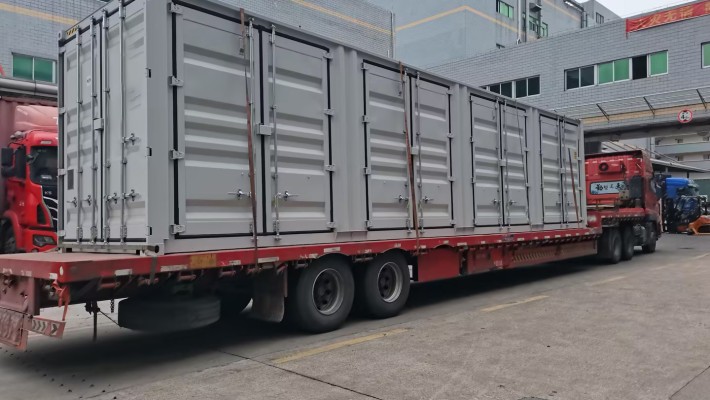Freight Forwarder Insights
Huin International Logistics Latest Articles
The Role of Freight Forwarders in the Energy Storage System Sector
Introduction:
As China intensifies efforts towards sustainable energy development, its energy
storage system (ESS) sector has gained significant momentum. Over the years,
ESS has emerged as a key technology for effectively integrating renewable
energy sources and mitigating grid instability. In this transition, the role of
freight forwarders has become crucial in facilitating the smooth transportation
and installation of these innovative energy storage systems. This article
explores how freight forwarders are driving the growth of the ESS sector in
China.
1. Overcoming Supply Chain Challenges:
With the rapid rise in the demand for energy storage systems, supply chain
challenges have emerged. These challenges encompass the transportation,
storage, customs clearance, and installation of bulky ESS components. Freight
forwarders play a pivotal role in streamlining these complex processes,
ensuring safe and timely delivery of ESS components from manufacturers to
installation sites.
Freight forwarders utilize their extensive network and expertise to optimize
transportation routes, choose appropriate carriers, and handle necessary
documentation. They act as a bridge between ESS manufacturers, project
developers, and end-users, implementing efficient logistics strategies that significantly
reduce supply chain bottlenecks and improve overall project timelines.
2. Specialized Handling and Warehousing:
Energy storage systems consist of unique and sensitive equipment, including
batteries, controllers, transformers, and cabling. These components require
specialized handling and warehousing to minimize the risk of damage during
transit. Freight forwarders with expertise in handling such delicate cargo
provide customized packaging solutions, ensuring ESS components are securely
protected throughout their journey.
Furthermore, freight forwarders collaborate with warehouses that are equipped
with advanced storage facilities capable of accommodating ESS components. This
enables optimal inventory management and reduces the risk of storage-related
issues, such as theft or damage.
3. Customs Clearance and Regulatory Compliance:
Navigating the complex customs clearance procedures is essential when importing
or exporting ESS components. Freight forwarders possess in-depth knowledge of
customs regulations, documentation requirements, and import/export compliance.
They work closely with relevant authorities to ensure seamless customs
clearance, avoiding delays or complications at port entry points.
In addition to customs compliance, freight forwarders assist ESS manufacturers
in meeting the evolving regulatory standards set by local authorities. They
stay updated with the latest regulations governing ESS transportation and
installation and provide necessary guidance to manufacturers to ensure compliance.
4. Last-Mile Delivery and Installation:
The successful deployment of energy storage systems depends on efficient
last-mile delivery and installation. Freights forwarders leverage their
intricate knowledge of the local transportation network and infrastructure to
plan the most optimal routes for ESS transportation, reducing travel time and
costs.
Once the ESS components reach their destinations, freight forwarders coordinate
with local installation teams to ensure swift and accurate assembly. They
meticulously manage project schedules, ensuring that all components are
delivered promptly to the installation site, minimizing any potential
disruptions.
Conclusion:
Freight forwarders are pivotal players in the Chinese energy storage system
sector, enabling the seamless transportation and installation of ESS
components. By tackling supply chain challenges, offering specialized handling
and warehousing facilities, ensuring customs clearance, and facilitating
last-mile delivery, freight forwarders contribute significantly to the growth
and success of the ESS sector.
As China continues to promote renewable energy adoption, the role of freight
forwarders will become increasingly critical in improving the efficiency and
effectiveness of the developing ESS ecosystem. Through their professionalism
and expertise, freight forwarders are playing a vital role in transforming
China's energy landscape and ensuring a sustainable future for the nation.
